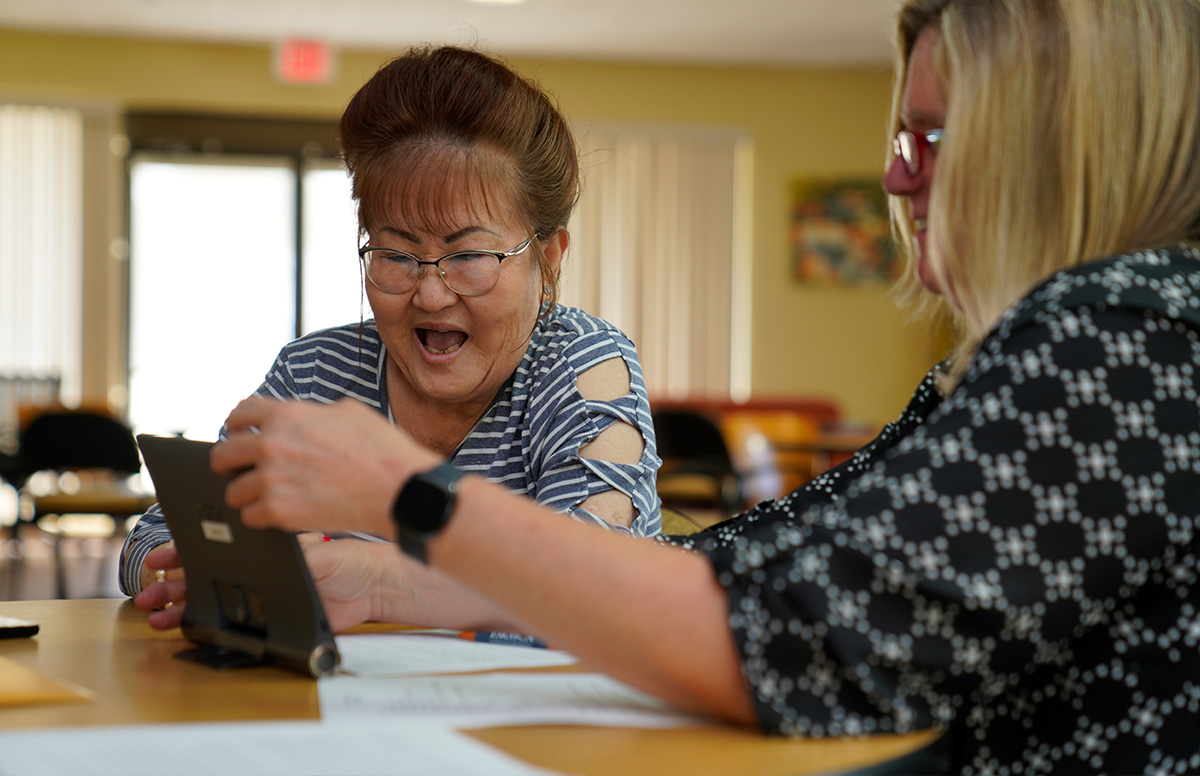A new CAST case study shares how engagement technology from LifeLoop, a LeadingAge Bronze Partner with CAST Focus, helped Sitter & Barfoot Veterans Care Center (SBVCC) to address the changing needs in its memory care unit. Customized content increased residents’ engagement by 75 percent—even inspiring a nonverbal resident to speak aloud during a word game. Family members’ communications with residents rose by the same amount, and staff reported a 100 percent increase in job satisfaction.
The center, which offers skilled nursing and is operated by the Virginia Department of Veterans Services, is located in Richmond, VA. In pursuing the integration, SBVCC hoped to solve an ongoing challenge: enabling staff to adapt programming quickly for memory care residents, whose responses can be unpredictable.
Customized Content Engages Residents Across Ability Levels
SBVCC chose to implement LifeLoop’s iN2L personalized engagement content to offer meaningful activities that cater to residents’ various cognitive, emotional, and social needs. Engagement content is provided through two types of units: 55” touchscreens are installed in common areas, with 23” units used in small group and one-on-one settings.
These systems enable staff to quickly access 6,700 pieces of clinically backed engagement content and to choose activities that meet residents’ preferences and abilities. In addition, the units enable staff to share family members’ videos and photos with residents, increasing a sense of connection among all parties.
The ability to quickly change the direction of activities benefits both residents and staff. For example, when residents lost interest during a Veterans Day livestream, staff quickly swapped in military branch songs from the iN2L content and a slideshow of photos sent by families. This quick switch re-engaged the residents and enabled them to continue enjoying the Veterans Day event.
The iN2L content can also reawaken memories and enable residents to engage. In one instance, a man who had never spoken at the center began verbally participating in word games; the activity likely sparked his past memory of playing similar games with his wife. Another time, a man living with dementia was able to interact again with his wife when they used the technology to remember the time they lived together in Germany.
Hands-on Trainings Ease Adoption
Trainings helped ensure that staff felt comfortable with the system and could switch content as quickly as needed to keep residents engaged. Approximately 40 Certified Nursing Assistants received hands-on training, with 12 super-users given advanced training and empowered to onboard other staff. The trainings were designed to be brief and easy to fit into staff schedules, and the sessions’ hands-on nature was considered a key to success.
The system’s efficiency received high marks from staff. In addition to LifeLoop’s ability to keep residents engaged, staff appreciate the built-in activity recommendations. These elements reduce the time staff need to spend on programming, leaving more time for interacting with residents and prompting that 100 percent increase in job satisfaction.
For more details, read the full case study.

 Shutdown Week Three: Impact of Ongoing Closure on Affordable Housing
Shutdown Week Three: Impact of Ongoing Closure on Affordable Housing


